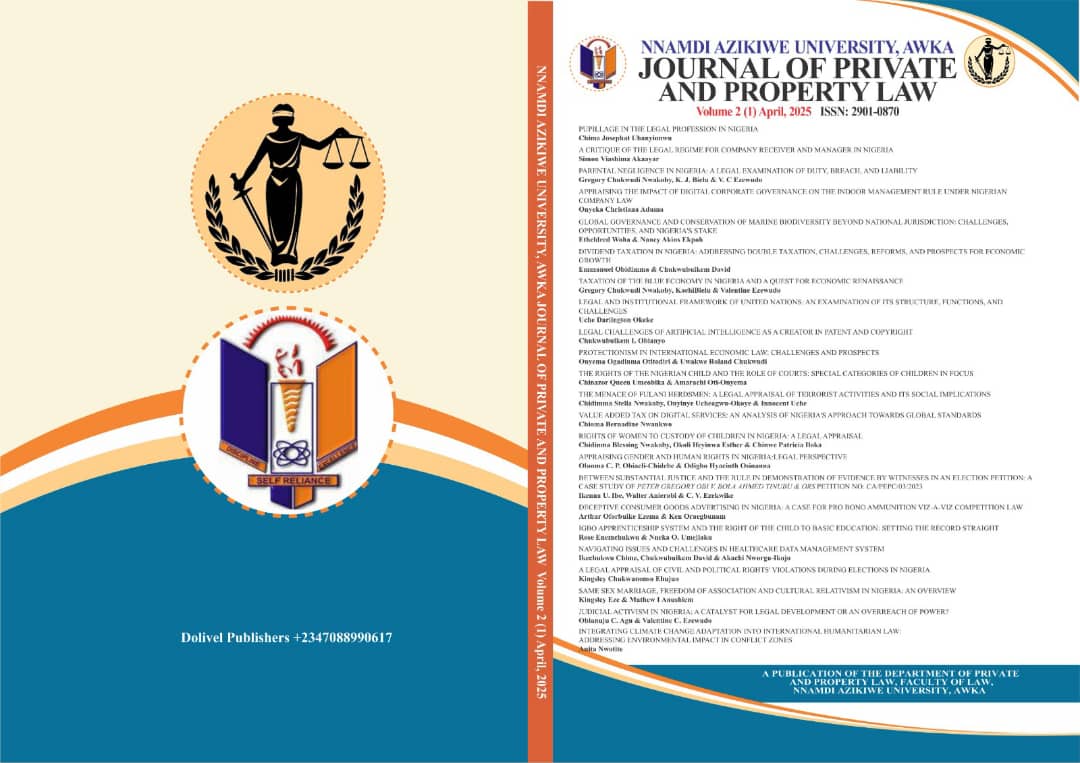TAXATION OF THE BLUE ECONOMY IN NIGERIA AND A QUEST FOR ECONOMIC RENAISSANCE
Abstract
The blue economy, comprising ocean-based sectors such as shipping, fisheries, offshore energy,
coastal tourism, and marine biotechnology, has emerged as a vital frontier for economic
diversification and sustainable development in Nigeria. As the fiscal demands of governance grow,
exploring viable avenues for revenue generation through taxation of these maritime industries has
become imperative. Taxation, long recognized as the lifeblood of state financing, must evolve to
accommodate the dynamic realities of Nigeria’s territorial waters and exclusive economic zones.
This study critically assesses the viability of implementing an efficient, equitable, and sustainable tax
framework within Nigeria’s blue economy. It interrogates the extent to which current legal
structures, institutional mechanisms, and administrative capacities are equipped to support the
taxation of blue economy activities. The research adopts a doctrinal methodology, drawing upon
primary legal instruments, including the Constitution of the Federal Republic of Nigeria 1999 (as
amended), the Federal Inland Revenue Service (Establishment) Act, the Nigerian Maritime
Administration and Safety Agency Act, and applicable tax legislation - alongside judicial decisions
and international best practices. Secondary sources such as scholarly textbooks, journal articles,
and policy reports were also consulted. The findings reveal significant legal and institutional gaps,
including overlapping regulatory mandates, absence of sector-specific tax provisions, and poor
inter-agency coordination, which collectively undermine the fiscal potential of the blue economy.
While recent efforts under Nigeria’s Medium-Term Revenue Strategy signal a shift towards non-oil
revenue mobilization, the lack of a harmonized, targeted framework for maritime taxation remains
a critical bottleneck. The paper concludes with concrete recommendations for legal reform,
improved institutional synergy, and stakeholder-inclusive policies to ensure the blue economy
becomes a sustainable and tax-yielding pillar of national development.

